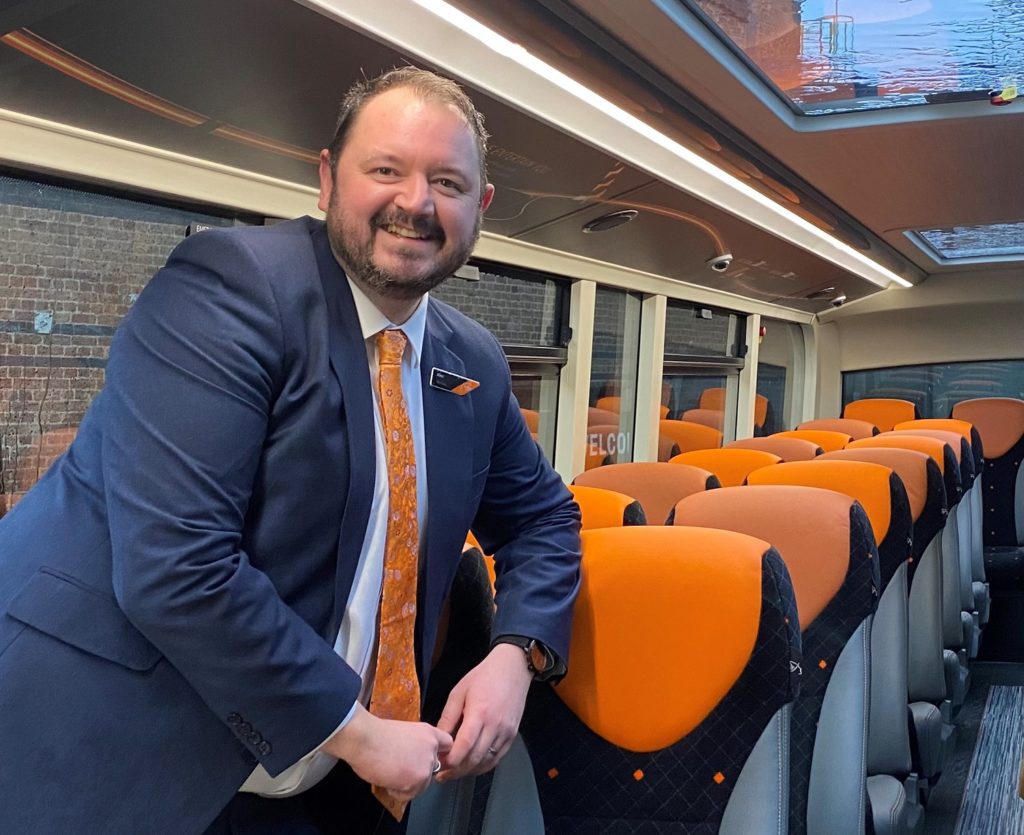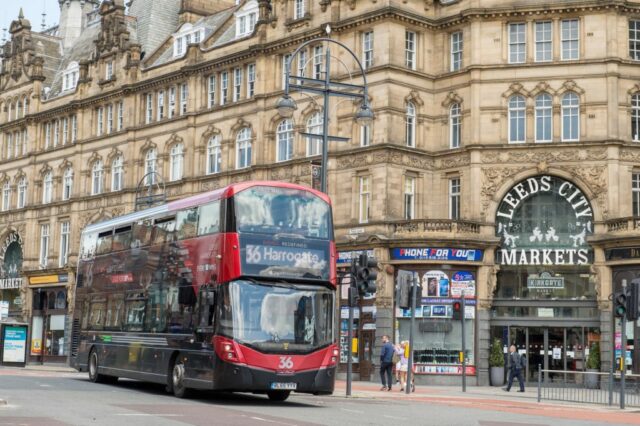Transdev in northern England is declaring its support for a £3 billion UK Government plan to place buses at the heart of the nation’s transportation recovery beyond the pandemic.
Prime Minister Boris Johnson is today unveiling the National Bus Strategy, the most ambitious shake-up of the bus industry in a generation, with plans for simpler fares in towns and cities, more frequent services and hundreds of miles of new bus lanes to make journeys quicker and more reliable.
The ten-point Government plan sets out how the bus industry will work with regional and local authorities to deliver the improvements, through either a statutory ‘enhanced partnership’ with councils or by franchising.
Our company has been proud to lead the way when it comes to growing the market for bus travel and delighting our customers through our relentless focus on innovation and investment.
We are pleased to see that the Government is matching the confidence we have in the ability of the bus to drive a green, economic recovery and a clarity of vision on what is expected from bus operators and local authorities. This reflects many of the things we already deliver, day in and day out, as part of our continued attention on the needs of our customers, from ultra-low and zero emission buses, to attractive and frequent services and contactless day and week fare capping.
However, the biggest opportunity to create growth in bus use could be the shared commitment now expected from operators and local authorities in terms of punctuality and timekeeping, and the funding to support more bus priority, as we know buses being on time is the customer’s key demand.
Alex Hornby, Transdev CEO in northern England
The National Bus Strategy sets out plans to deliver:
- An expectation that operators and local authorities work together in creating local Bus Improvement Plans
- More bus lanes to make journeys quicker and more reliable
- Simpler fares with daily price caps
- 4,000 new British-built electric or hydrogen powered buses.
- An end to sales of new diesel buses, with a consultation also launched today.
Transdev UK’s ‘the 36’ linking Ripon, Harrogate and Leeds, relaunched in 2016 and supported by a total investment of over £4 million, is among the success stories highlighted in the new National Bus Strategy, to show what can be achieved. The route carried 2.1 million customers in 2019, up 29% from 1.6 million customers in 2015, and features highly appointed, twin-deck buses powered by low emission engines and packed with customer-friendly features.
Transdev UK’s also introduced the country’s first all-electric bus fleet on its Harrogate town network in 2019 – and is currently midway through a program of trials ahead of rolling out a new generation of battery-electric buses.
This followed the 15 per cent increase in customers following the acquisition by Transdev of former council owned company Rossendale Transport in 2018, and a relaunch of bus networks across Lancashire.
Transdev UK says plans for hundreds of miles of new bus lanes will help to persuade even more people to switch from the car to the bus, reducing pollution and making buses more efficient.
We believe buses can make our towns and cities better. As a form of sustainable mass transit, they enable the most people to move about in a safe, comfortable and efficient way. Often the lowest emission vehicles on the road, they set the example as a clean and green form of transportation.
This National Bus Strategy is moving in the right direction to address the transportation concerns of our industry and the nation. We are ready to work with Government and with our local authority partners, having already proven this approach is successful in practice, to deliver further improvements that will translate into a major step-change in the perception of the bus and in customer growth.
Louis Rambaud, CEO Transdev UK and Ireland
Today’s National Bus Strategy announcement follows the launch in November 2020 of Transdev’s own blueprint for action to boost buses and revive communities.
“Build Buses Back Better” is a 28-page road map for buses beyond the pandemic, which put forward many of the positive changes set out in today’s Government plan, such as more bus priority measures in urban areas, further zero and low emission zones in town and city centers, and partnerships to attract more bus use – highlighting as an example Transdev’s successful three-way partnership with the West Yorkshire Combined Authority and Leeds Bradford Airport to deliver the regional ‘FLYER’ bus network.
Transdev mailed its document direct to over 200 key decision makers and business leaders across the region served by its buses, from central Lancashire to the Yorkshire Coast.


